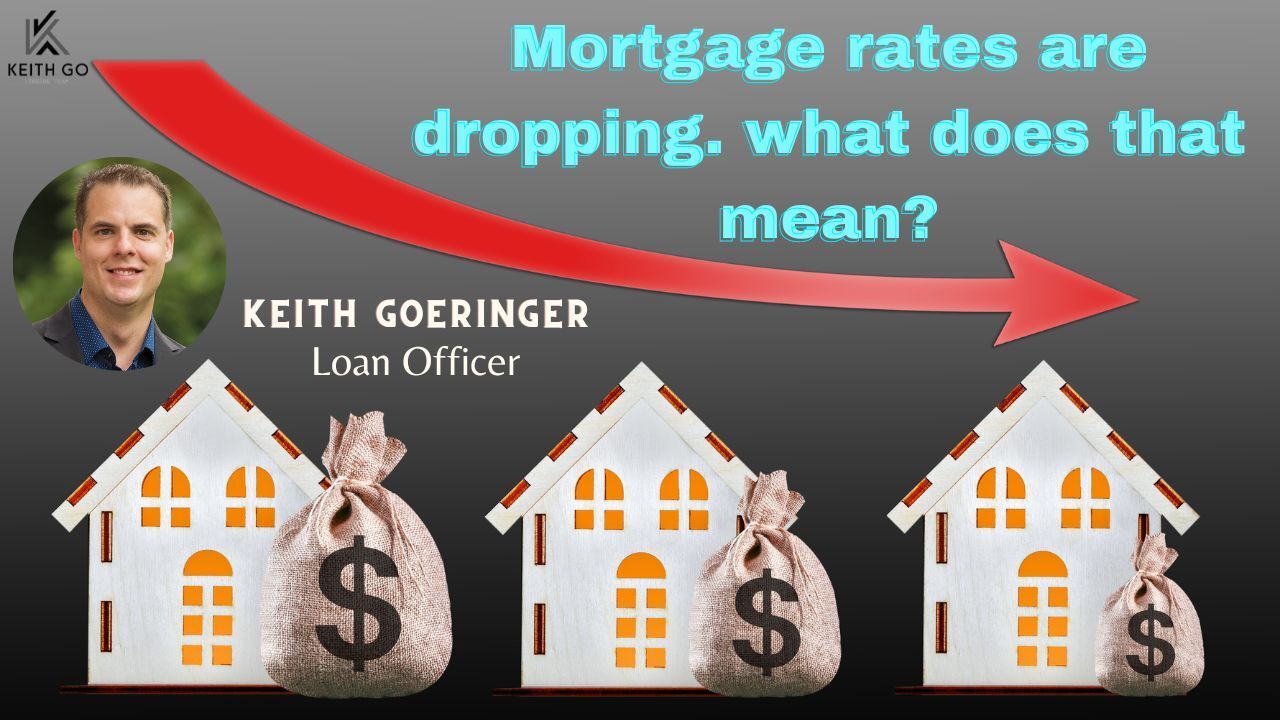Contingent: What Does Contingent Mean In Real Estate?

Contingent: What Does Contingent Mean In Real Estate?
People frequently use the word “contingent” in real estate, but what does it mean?
Contingent Definition
Both outside and inside the world of real estate, “contingent” means “subject to change, occurring or existing only if certain circumstances are the case.”
The company picnic could be scheduled for Saturday the 8th, contingent on weather conditions, or you could say you plan to move to Manhatten next month contingent on receiving a job.
In other words, this depends on that thing happening. If that other thing doesn’t happen, then this won’t either.
What Does Contingent Mean In Real Estate?
Because there are so many things that need to happen for a deal to close in real estate, contingent is a fundamental term. It enables buyers and sellers to lock in deals while acknowledging that certain other things must happen for that deal to be finalized.
In short, it means that something has to happen before the deal is finalized, and if it fails, the deal could fall apart.
A prime example of this is what’s called a contingent offer.
What Is A Contingent Offer?
A contingent offer is an offer to purchase a property with a condition that must be met for it to become fully binding.
I’ll show you some of typical contingencies below, but here’s an example:
Let’s say you’re looking to buy a house, but don’t want to be legally obligated to buy it at that price if the home inspection reveals that the house needs costly repairs that weren’t taken in account when you made the offer. So you could make an offer of $X that’s contingent on loan home inspection.
If in the next few days the home passes its inspection with no major issues, you are contractually obligated to buy the house for that price.
But, if the home inspection reveals costly repair needs, you have the option to withdraw your bid, and won’t be contractually obligated to buy it at that price.
In this case, a contingent offer saves you from problems down the road, or at least creates an opportunity to renegotiate the conditions of your offer.
How Common Are Contingent Offers?
They’re very common, especially during periods when the real estate market is not highly competitive like it was in 2021. As of mid-2020, a survey by the National Association of Realtors found that 76% of recently closed sales contained at least one contingency.
What Percentage Of Contingent Offers Fall Through?
According to the same study by the National Association of Realtors, 9% of offers in 2020 were terminated.
Of those terminated contracts, 28% were due to the buyer losing their job so their loan fell through (realize that this was taken during the Covid layoffs, so that factor is overstated in normal times,) 21% because financing fell through, 17% due to home inspection issues and 7% for other issues stated as contingencies in the contract.
By the way, that number has improved since then, only 7% of offers were terminated in May of 2022.
Are Contingent Offers A Good Idea?
That all depends on whether you’re the buyer or the seller.
As a buyer, you want to be as protected as possible. You want the option to bow out of the deal if anything goes wrong.
But if you’re the seller, contingencies usually aren’t in your favor. Because they give the buyer the potential to cancel the deal, leaving you having to start the entire process over, showing your property, receiving and choosing between other offers, etc. That’s a pain in the neck and potentially embarrassing.
So, if you are the seller and have two offers for the same amount of money, one has contingencies included in the offer, the other doesn’t, you’re more likely going to choose the one with no contingencies.
Smart buyers weigh the fact that their offer will be less appealing versus the protections they desire as they make their offers.
Times When Contingencies May Not Be A Good Idea
You may want to avoid including contingencies in your offer if
· The housing market is extremely competitive
If your offer is going to be one of many received within hours of listing the property on the market, inclusion of contingencies reduces the attractiveness of your offer. For example, during the hot market of 2021, we oftentimes saw cash offers (no financing contingency) and no home inspection contingency offers winning the day.
· You really really want this house and can’t afford to make a higher offer
Sometimes we fall in love with a home, that’s understandable (but usually not a great idea – fall in love with it after you have an accepted offer,) but simply can’t afford to make an offer they can’t refuse. Taking a higher risk by removing contingencies can increase your probability of getting your offer accepted.
Common Real Estate Contingencies
Here are some of the contingencies that we see in contingent offers:
· Home inspection contingency
· Financing contingency
· Appraisal contingency
· Title contingency
· Home sale contingency
Home Inspection Contingency
Home inspections are traditionally considered one of the most important contingencies with 95% of all home purchases undergoing inspections. Nobody wants to buy a home, only to discover thousands of dollars of structural or other issues that they will have to pay for in addition to the purchase price of the home.
Home Inspection Contingencies state that the offer is contingent on a home inspection report. This inspection will be performed by an independent outside expert.
For buyers, a home inspection contingency gives them power by enabling them to renegotiate their purchase price (or get the seller to fix the issues before closing) if major problems are revealed in the inspection. If the seller is not willing to meet their demands, they can walk away, and get their earnest money back.
If you are a seller and wish to avoid issues with a home inspection (and possibly increase the selling price of your home) you may want to purchase a pre-listing home inspection. For around $400, you can get a inspection performed, fix any issues, and provide it to potential buyers to raise their comfort level in purchasing your home.
Financing Contingency
In a financing contingency, the buyer’s offer is contingent upon their ability to get a loan for the required amount from a lender.
Even though it is common for buyers to get a loan pre-approval before shopping for a home, loans can still fall through, and when that happens, buyers can walk away from the deal and receive their earnest money back.
Buyers can reduce this risk by getting a pre-approval before home shopping, and sellers can have their agent contact the buyer’s lender to get more information on their financial status prior to accepting the offer.
And remember – a loan denial isn’t the end of the world (or your home-buying journey.) If you’re denied financing, we can help you find another lender to see if they can help get them a loan. CTA goes here
Appraisal Contingency
In an Appraisal Contingency, the buyer’s offer is contingent on the home appraising for more or equal to their bid price.
Appraisals are conducted by an unbiased third party and are usually ordered by the mortgage lender working to approve the loan.
For sellers, we recommend not accepting an appraisal contingency. For buyers, a poor appraisal will usually result in your inability to receive a loan for the full amount required for your offered purchase price, so it may be covered through a financing contingency.
Title Contingency
A title shows who owns a piece of property (and has the right to sell it without issues.) Unfortunately, not all titles are “clean.”
That’s why a standard part of almost all home sales is a title search, which looks for anything that might indicate that the seller does not have the right to sell that property. When problems arise they are usually due to mortgage liens from the past (a mortgage or other debt that used the house as collateral hasn’t been fully paid off or wasn’t accurately recorded as paid off) or there may be other encumbrances like easement issues (when other parties have the right to use someone else’s land for a particular purpose.)
Fortunately, title issues are usually identified and oftentimes resolved as part of the title search process, so this shouldn’t be a big concern.
Home Sale Contingency
In a home sale contingency, the offer is contingent upon the buyer being able to sell their home first.
If you’re the seller, you probably don’t want to accept an offer with a home sale contingency. The risk of failure is high, it frequently involves delay, and the headaches aren’t worth the value.
If you’re the buyer, we recommend selling your home first, then placing an offer on another home. It’s easier all around.
Contingent With A Kick-Out
Since contingencies add uncertainty to the closing process, sellers may request a “kick-out clause.”
A kick-out clause enables the seller to accept a contingent offer while retaining the right to consider other offers that are more acceptable to them.
When an offer has a kick-out clause attached, the seller can consider other offers. But if they like that other offer, they can’t just accept it. They have to notify the buyer currently under contract, and give them the option to change their offer within a certain period of time. If the buyer drops their contingency or makes other acceptable changes, their offer stands. If they decline to make changes, the seller is then free to accept the other offer, terminating the original offer, and allowing the original buyer to receive their earnest money back.
On the other hand, a seller can accept the original offer without a kick-out clause, which would prevent them from accepting new offers until the contingency issues are resolved.
Finally, there’s one more aspect of contingency that is important in real estate:
Contingent Versus Pending Sale
When a seller accepts a contingent offer, there is a possibility that the conditions necessary for that offer to close may not happen. Going back to the example given above, the inspection may reveal an issue the buyer is not aware of. So, sellers want to keep their options open – and may be open to selling to someone else who does not have a contingency in their offer. This is where the kick-out clause, discussed above, applies.
To deal with these possibilities, the real estate community created the label Contigent Sale in the Multiple Listing System (MLS). A property that is listed as Contingent means that there is an offer in place, and the seller and buyer are waiting to see if the conditions of that contingency will be met.
Can You Make An Offer On A Contingent Home?
The important element for you, as a potential buyer, to understand is that a contingent home is not actually sold. You can still make an offer on it, and legally, the sellers can reject the current offer they are waiting on (if they have a kick-out clause in place) and accept yours.
That offer could be answered in 4 ways
- · Acceptance – they like your offer better than the one they are currently waiting on, so they accept yours. This usually happens when they have a kick-out clause and your offer was significantly better than theirs (higher price, no contingencies), or they’re tired of waiting on the other offer and just take yours to move things along and the original buyer isn’t willing to change their offer.
- · Conditional – they’ll get back to you if the other offer fails to go through.
- · Rejection – they could just say no.
- · No reply – yes, it happens, don’t take it personally. The offer may be moments away from completion or there’s some other reason.
When all the conditions of a contingent offer have been fulfilled, the offer’s status should move from Contingent to Pending. Pending properties technically can still accept other offers, but it’s rare that you’ll actually be able to buy a home that’s in Pending status.
Should You Make A Contingent Offer?
That’s up to you. Contingent offers are designed to protect you, the buyer, from some of the issues that could prevent you from being able to buy a home. In that way, they’re good.
But, in a hot, competitive real estate market, having contingencies in your offer could make it less competitive than other offers that don’t contain them.
We recommend weighing all the facts, market conditions, the competitiveness of that particular property, and your personal risk profile as you make this key decision.










